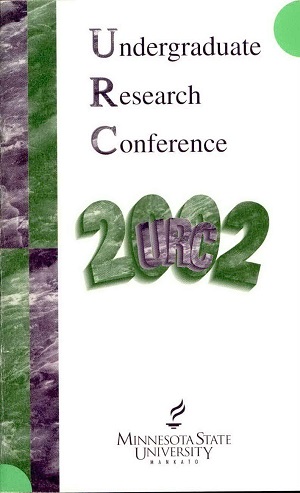The Semantic Characteristics of Words Recalled in the Retelling of Stories by Typically Developing Children and Children with Williams Syndrome
Location
CSU
Student's Major
Speech, Hearing, and Rehabilitation Services
Student's College
Allied Health and Nursing
Mentor's Name
Patricia Hargrove
Mentor's Department
Speech, Hearing, and Rehabilitation Services
Mentor's College
Allied Health and Nursing
Description
Williams Syndrome is associated with mental retardation, impaired motor skills, selected behavioral disturbances, visuospatial deficits, and language skills that are superior to those expected based on the knowledge of the level of nonverbal intelligence. The objective of the study was to explore oral story retelling skills of speakers with Williams Syndrome and children who are developing language typically. Six speakers with Williams Syndrome (WS) and six typically developing speakers served as subjects. Each child individually listened to an audiotape of the same story as their parent or guardian waited outside. Upon completion of this, the examiner invited the parent back in for the child to take their turn at retelling the story to them. All verbalizations produced by the subjects were transcribed by students in Communication Disorders who had undergone academic and clinical training in transcribing. The transcriptions were analyzed using Systematic Analysis of Language Transcripts (SALT), using a 3-point scale. The 3-point scale served as a measuring tool to quantify how many content words were successfully recalled by each child and the nature of the errors. The results indicate, thus far, that there are no significant differences between the two groups of children.
The Semantic Characteristics of Words Recalled in the Retelling of Stories by Typically Developing Children and Children with Williams Syndrome
CSU
Williams Syndrome is associated with mental retardation, impaired motor skills, selected behavioral disturbances, visuospatial deficits, and language skills that are superior to those expected based on the knowledge of the level of nonverbal intelligence. The objective of the study was to explore oral story retelling skills of speakers with Williams Syndrome and children who are developing language typically. Six speakers with Williams Syndrome (WS) and six typically developing speakers served as subjects. Each child individually listened to an audiotape of the same story as their parent or guardian waited outside. Upon completion of this, the examiner invited the parent back in for the child to take their turn at retelling the story to them. All verbalizations produced by the subjects were transcribed by students in Communication Disorders who had undergone academic and clinical training in transcribing. The transcriptions were analyzed using Systematic Analysis of Language Transcripts (SALT), using a 3-point scale. The 3-point scale served as a measuring tool to quantify how many content words were successfully recalled by each child and the nature of the errors. The results indicate, thus far, that there are no significant differences between the two groups of children.




